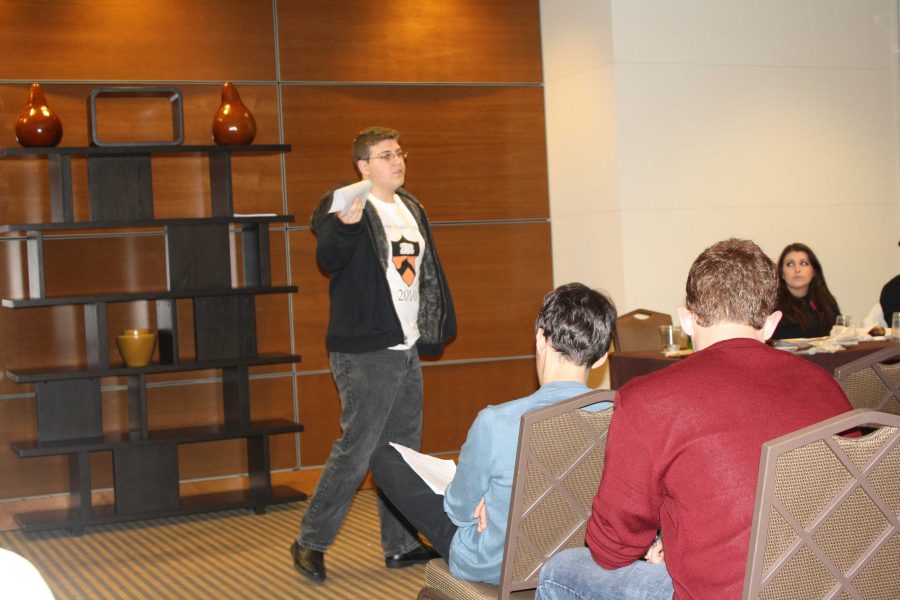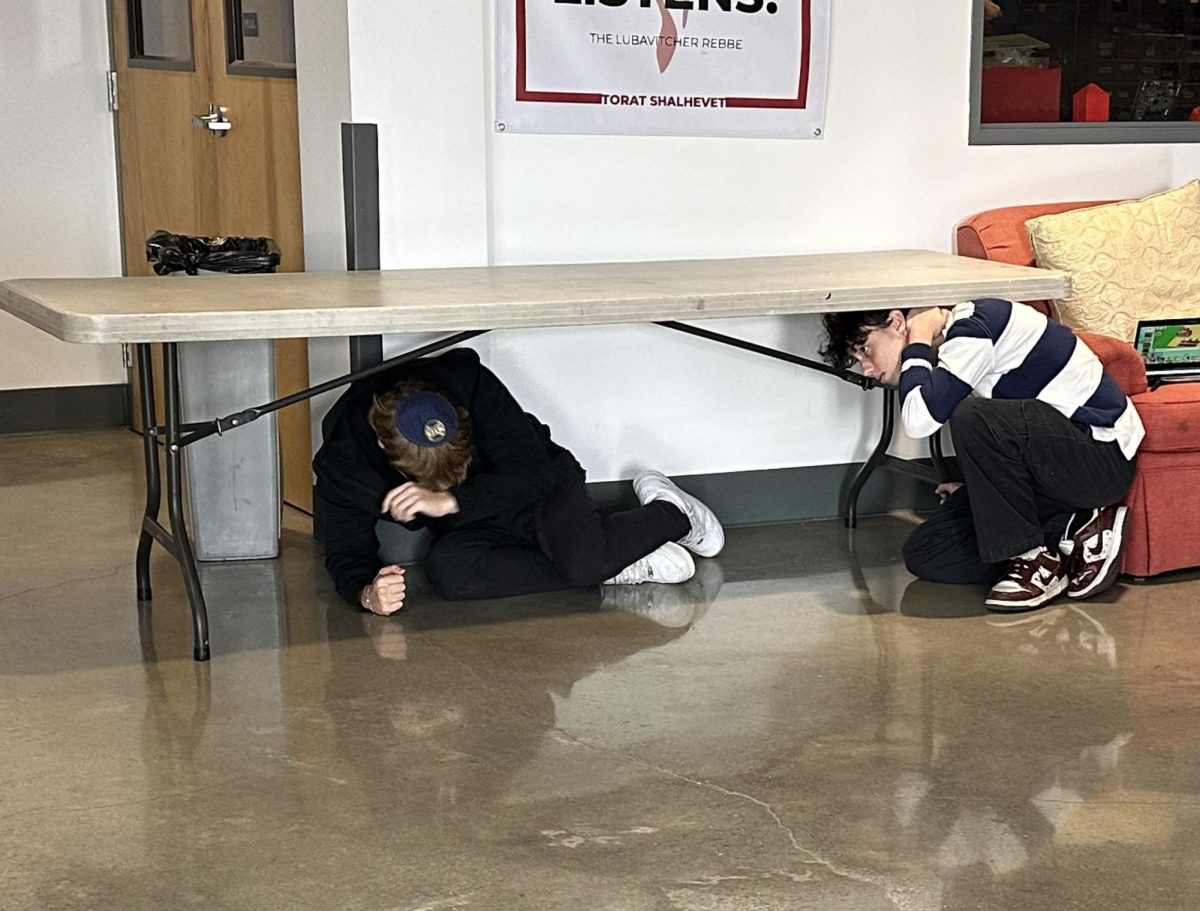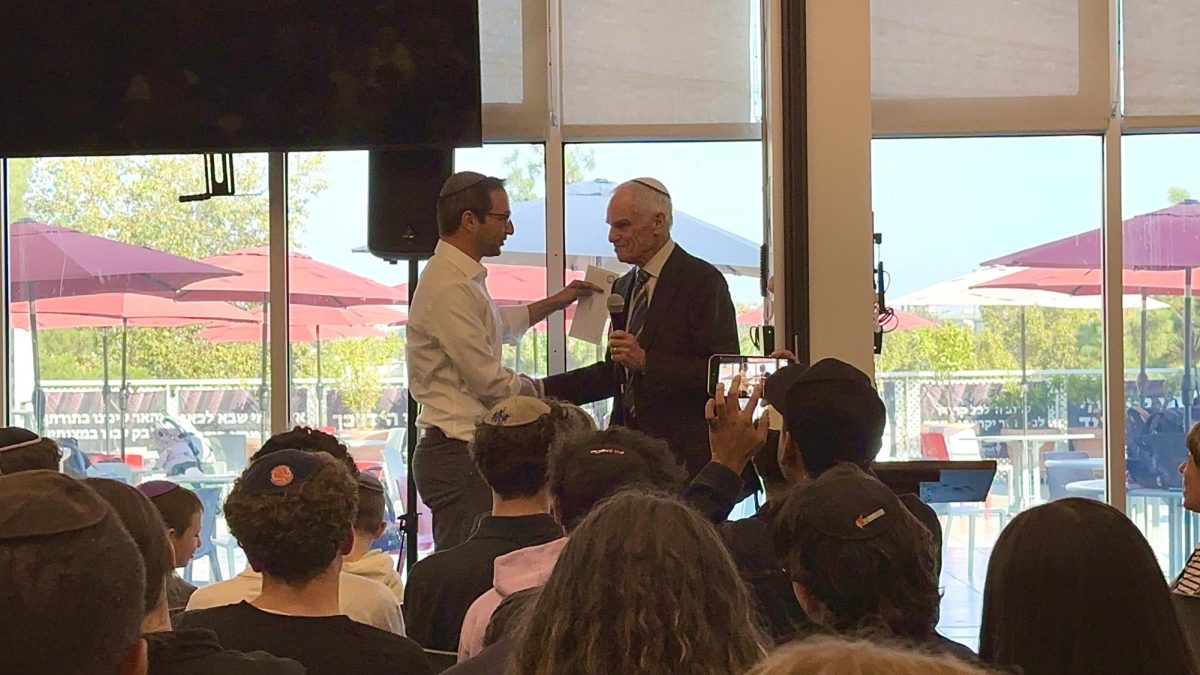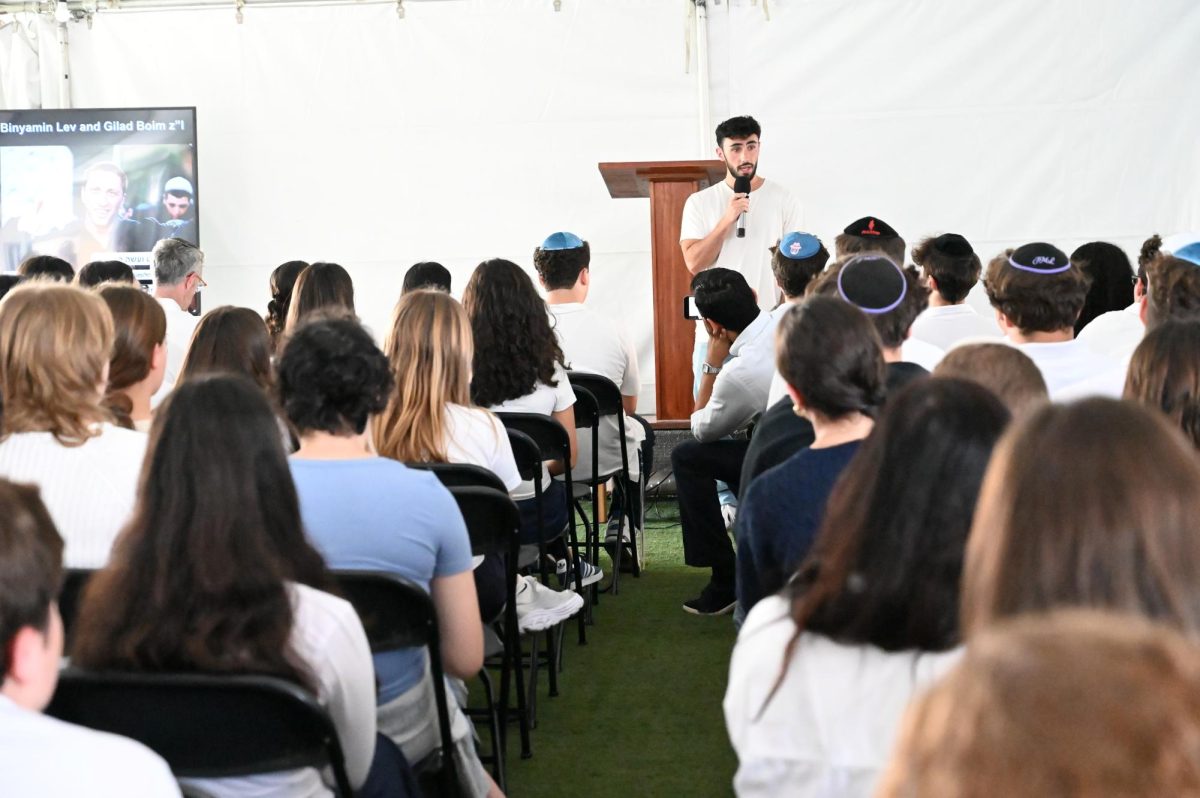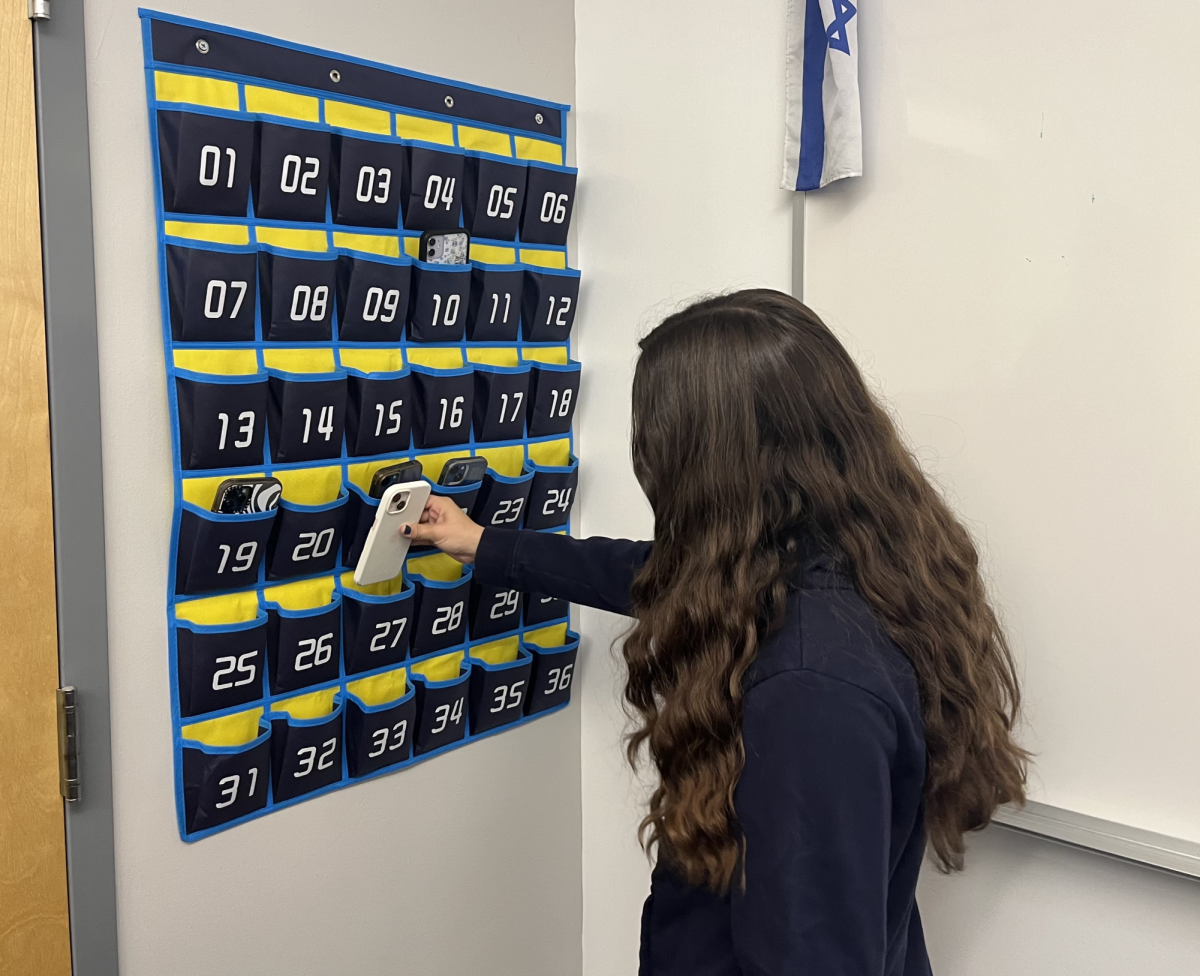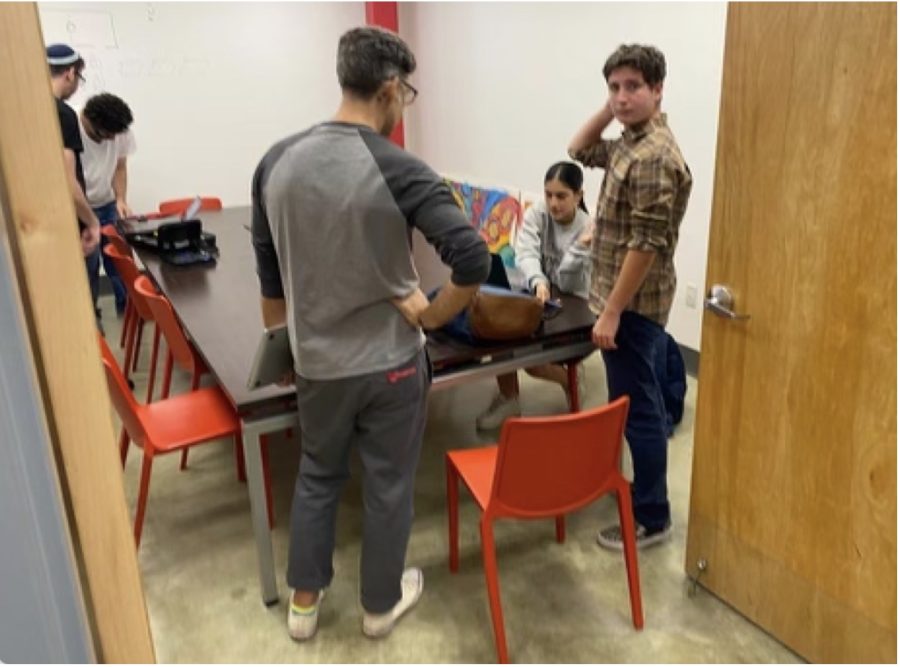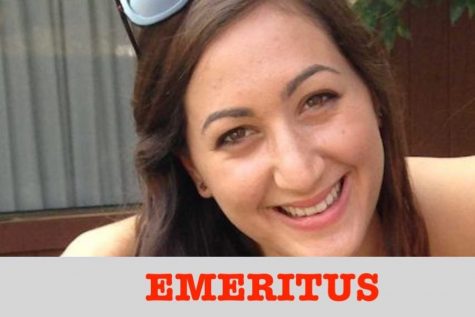Sitting in the “Red Senate,” one of four color-coded legislative bodies meeting in full session at Princeton Model Congress Nov. 21, Shalhevet’s champion debaters put up a united front in support of junior Eitan Spitzer’s global warming bill, which then passed by a landslide.
“I felt really proud because that was the first bill there that was from Shalhevet,” said fellow junior Ariella Joffe, a Red Senate delegate. “It was really amazing because it passed in full by a majority.”
Full session is a gathering of about 70 students debating bills that the chair presents. It’s all just an exercise, but it’s realistic in that only bills that have been approved in model “committees” have a chance to go forward, and the full session’s student “chair” decides which will actually be heard – just like in the Congress of the United States.
Shalhevet’s debate teams annually travel to three such meets, two based on Congress and one based on the U.N., and compete on the basis of public speaking, the ability to analyze and argue persuasively on their feet, and the quality and usefulness of proposals they’ve written themselves.
They’ve had great success, and teamwork is part of the reason.
Eitan’s bill, entitled “Global Warming: Evidence-based, Scientific, Non-partisan Assessment,” proposed to set up a commission of scientists to study and evaluate global warming research “as a political neutral entity.”
Scientists would be elected by the congressmen of each state, and the scientists’ terms on the committee would be two years, the bill stated. The commission’s findings would be made available to Congress, which would use it in reaching “future legislative and executive decisions.”
In a four-minute introductory speech, Eitan said there had never been a nonpartisan group to research the causes and potential solutions.
“This bill is crucial in order for the government to have a better understanding of how to deal and how to solve this issue,” Eitan said.
A senator from another school opposed the bill because it did not contain a way to fund the commission. Another opponent said it would merely waste time and money studying the problem instead of doing something about it.
Shalhevet co-captain Ari Tuchman countered that global warming needed more unified attention from the scientific community.
“Scientists around the country are all working on the same problem, but not together,” Ari said.
After two more “con” speeches saying obsessing over what global warming is would not be beneficial, Eitan rose again to refute them. Then Shalhevet junior Michael Silver rose and cited An Inconvenient Truth, in which graphs showing effects of global warming are scaled to look more dramatic than they really are. This supported Eitan’s contention that an impartial look at the problem was needed.
After Michael’s speech, there was a motion introduced to move the previous question – that is, to vote on the bill. Eitan gave a two-minute summation speech. The bill passed with a vote of 53 to 12, with four abstentions.
“We always try to support each other whether we’re speaking for each other’s bills, or getting each other time to speak in full,” said co-captain Ari Feuer.
“We definitely tried to push Eitan’s bill through, and we’re happy that it did go through in the end.”
“I was surprised that it went to full,” Eitan said. “I hope the school continues to have the success that it has had.”

